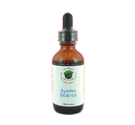|
|
Motor Nerve Support Remedy
 |
Motor nerves specialize in carrying signals which will result in muscle contraction. They only have an excitatory action, meaning that they can only signal contractions, not relaxation of the muscle. Normally, messages from nerve cells in the brain (called upper motor neurons) are transmitted to nerve cells in the brain stem and spinal cord (called lower motor neurons) and then to specific muscles. Upper motor neurons direct the lower motor neurons to produce movements such as walking or chewing. Lower motor neurons control movement in the arms, legs, chest, face, throat, and tongue. When a motor nerve meets a muscle, the neuron releases chemicals which stimulate muscle contraction.
When there are disruptions in the signals between the lowest motor neurons and the muscle, the muscles do not work properly. They will gradually weaken and begin wasting away or developing uncontrollable twitching (called fasciculations). When there are disruptions in the signals between the upper motor neurons and the lower motor neurons, the limb muscles develop stiffness (called spasticity). Movements become slow and difficult, and tendon reflexes such as knee and ankle jerks become overactive. Over time, the ability to control voluntary movement can be lost.
Health Conditions
Motor Nerve Diseases (MND) are classified as either inherited or sporadic, and whether the degeneration affects upper motor neurons, lower motor neurons, or both. In adults, the most common MND is amyotrophic lateral sclerosis (ALS or Lou Gehrig's disease), which affects both upper and lower motor neurons. Many doctors use the terms motor neuron disease and ALS interchangeably. It has inherited and sporadic forms and can affect the arms, legs, or facial muscles. Primary lateral sclerosis is a disease of the upper motor neurons, while progressive muscular atrophy affects only lower motor neurons in the spinal cord. In progressive bulbar palsy, the lowest motor neurons of the brain stem are most affected, causing slurred speech and difficulty chewing and swallowing. There are almost always mildly abnormal signs in the arms and legs.
If the MND is inherited, it is also classified according to the mode of inheritance. Autosomal dominant means that a person needs to inherit only one copy of the defective gene from one affected parent to be at risk of the disease. There is a 50 percent chance that each child of an affected person will be affected. Autosomal recessive means the individual must inherit a copy of the defective gene from both parents. These parents are likely to be asymptomatic (without symptoms of the disease). Autosomal recessive diseases often affect more than one person in the same generation (siblings or cousins). In X-linked inheritance, the mother carries the defective gene on one of her X chromosomes and passes the disorder along to her sons. Males inherit an X chromosome from their mother and a Y chromosome from their father, while females inherit an X chromosome from each parent. Daughters have a 50 percent chance of inheriting their mother's faulty X chromosome and a safe X chromosome from their father, which would make them asymptomatic carriers of the mutation.
Most common motor nerve diseases:
- Amyotrophic lateral sclerosis (ALS)
- Progressive bulbar palsy
- Pseudobulbar palsy
- Primary lateral sclerosis (PLS)
- Progressive muscular atrophy
- Spinal muscular atrophy (SMA)
- Progressive spinobulbar muscular atrophy
- Post-polio syndrome (PPS)
Suggestions To Strengthen
None at this time.
|
|
| |
Nerves Motor Support Remedy
Complete support remedy for Nerves Motor and related functions
$14.95
|
 Add
To Cart Add
To Cart |
 |
 |
Gallbladder Support Remedy
Complete support remedy for Gallbladder and related functions
$14.95
|
 Add
To Cart Add
To Cart |
 |
 |
Brain Support Remedy
Complete support remedy for Brain and related functions
$14.95
|
 Add
To Cart Add
To Cart |
 |
 |
Large Intestine Support Remedy
Provides support and healing for conditions of the large intestine
$14.95
Read/Write Reviews
|
 Add
To Cart Add
To Cart |
 |
 |
|
|




